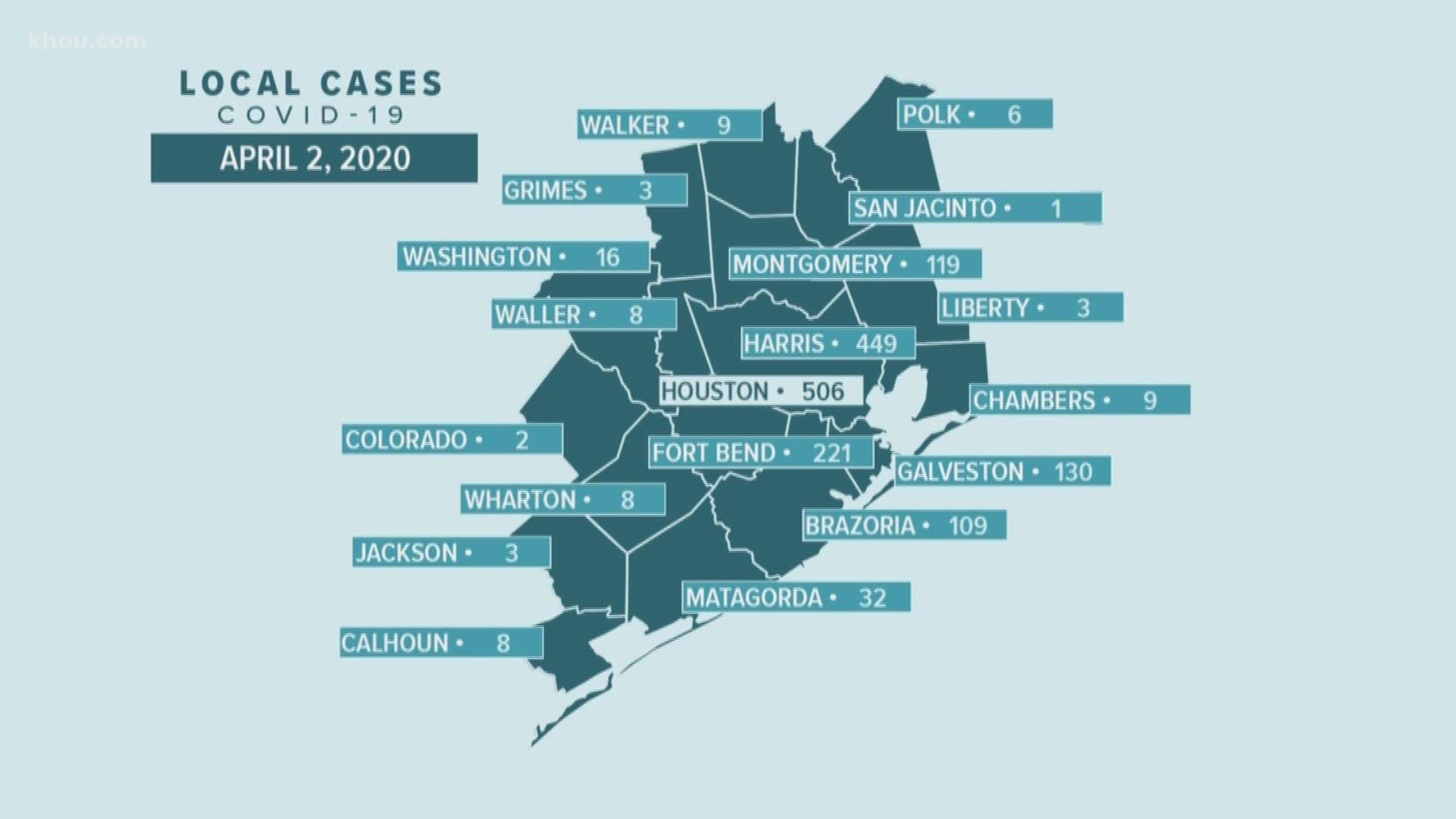HOUSTON — A Houston police officer diagnosed with COVID-19 is now on a ventilator, according to Chief Art Acevedo.
Chief Acevedo said 17 HPD employees, “all front-line members of the department,” have tested positive for the virus. He said a second officer who tested positive has recovered and is now back at work.
The Houston Fire Department has also been hard hit by the coronavirus. Twelve HFD employees have tested positive, according to Chief Sam Pena. Two of them have recovered. Another 173 HFD employees are in quarantine.
Chief Pena said of the 173 HFD employees in quarantine, 49 were tested, and 12 of those tested positive. Chief Pena said two employees have recovered.
“I just want to stress to the public, we’re urging you to stay home before this thing hits home," Pena said during a news conference Thursday.
Mayor Sylvester Turner said first responders are approaching calls as if everybody in the City of Houston has COVID-19, which is why the utilization of PPEs is exceptionally high. Those interested in donating PPE can email donations@houstonemergency.org.
The virus has hit first responders in Harris County as well. A Harris County Sheriff’s Office detention officer tested positive for COVID-19, bringing the agency’s total number of confirmed cases to 13.
The detention officer is a male in his mid-20s, assigned to work in the 1200 Baker Street jail facility. He is the first detention officer to test positive for the virus, and the third overall employee assigned to work in the 1200 Baker Street jail.
There are currently 179 Harris County Sheriff’s Office deputies, detention officers and support staff on quarantine for possible COVID-19 exposure, including one who is in the hospital.
Coronavirus symptoms
The symptoms of coronavirus can be similar to the flu or a bad cold. Symptoms include a fever, cough and shortness of breath, according to the Centers for Disease Control. Some patients also have nausea, body aches, headaches and stomach issues. Losing your sense of taste and/or smell can also be an early warning sign.
Most healthy people will have mild symptoms. A study of more than 72,000 patients by the Centers for Disease Control in China showed 80 percent of the cases there were mild.
But infections can cause pneumonia, severe acute respiratory syndrome, kidney failure and even death, according to the World Health Organization. Older people with underlying health conditions are most at risk for becoming seriously ill. However, U.S. experts are seeing a significant number of younger people being hospitalized, including some in ICU.
The CDC believes symptoms may appear anywhere from two to 14 days after being exposed.
Human coronaviruses are usually spread through...
- The air by coughing or sneezing
- Close personal contact, such as touching or shaking hands
- Touching an object or surface with the virus on it, then touching your mouth, nose or eyes before washing your hands.
Help stop the spread of coronavirus
- Stay home when you are sick.
- Eat and sleep separately from your family members
- Use different utensils and dishes
- Cover your cough or sneeze with your arm, not your hand.
- If you use a tissue, throw it in the trash.
- Follow social distancing
Lower your risk
- Wash your hands often with soap and water for at least 20 seconds. If soap and water are not available, use an alcohol-based hand sanitizer.
- Avoid touching your eyes, nose, and mouth with unwashed hands.
- Avoid close contact with people who are sick.
- Clean and disinfect frequently touched objects and surfaces.
- If you are 60 or over and have an underlying health condition such as cardiovascular disease, diabetes or respiratory illnesses like asthma or COPD, the World Health Organization advises you to try to avoid crowds or places where you might interact with people who are sick.
Get complete coverage of the coronavirus by texting 'FACTS' to 713-526-1111.

